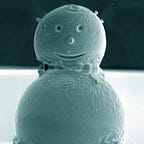Terasem Colloquium, December 10, 2021
UPDATE: Terasem Colloquium, December 10, 2021: VIDEO and impressions.
The Terasem Colloquium on December 10, 2021, 10am to 1pm ET via Zoom, will feature a stellar lineup of speakers: Susan Schneider, Randal Koene, Max More, Ken Hayworth, Martine Rothblatt, Robert McIntyre. The topic: What is consciousness, and how to preserve it beyond physical death?
You are invited!
10am — 10:30am ET: Susan Schneider
Susan Schneider is the founding director of the Center for the Future Mind at Florida Atlantic University (FAU). She writes about the nature of the self and mind, especially from the vantage point of issues in philosophy, AI, cognitive science and astrobiology. In her recent book, “Artificial You: AI and the Future of the Mind,” she discusses the philosophical implications of AI, and, in particular, the enterprise of “mind design.”
Title of the talk: Consciousness preservation: a Skeptic’s Guide
UPDATE: unfortunately Susan won’t be able to participate. So in this time slot I’ll open the Colloquium, introduce all participants and talks, and offer some thoughts on consciousness and its preservation.
10:30am — 11am ET: Randal Koene
Randal Koene is a computational neuroscientist whose professional efforts have focused on neural interfaces, neural prosthesis, and the functional reconstruction of neural tissue since at least 1994. Koene introduced the multi-disciplinary field of whole brain emulation and is lead architect of the scientific roadmap with which its technological development is promoted. He is a principal member of the University of Oxford working group that convened in 2007, which produced the first roadmap toward whole brain emulation (a term Koene proposed in 2000). In the decade since then, Koene has striven to advocate for the importance of the technology and the science, and identified accelerators for the development of neural interfaces, neural prostheses, and brain emulation.
11am — 11:30am ET: Max More
Max More is a strategic philosopher recognized for his thinking on the philosophical and cultural implications of emerging technologies. His contributions include founding the philosophy of transhumanism, authoring the transhumanist philosophy of extropy, and co-founding Extropy Institute, an organization crucial in building the transhumanist movement since 1990. He is the Ambassador and President Emeritus of Alcor Life Extension, after serving as CEO and President from 2011 to 2020.
11:30am — noon ET: Ken Hayworth
Kenneth Hayworth has a PhD in Neuroscience and specializes in developing electron microscopic imaging techniques for comprehensively mapping synaptic connectivity. Hayworth is also the president and co-founder of the Brain Preservation Foundation which advocates for the development of a medical preservation procedure that can provably preserve those ultrastructural and molecular features of the brain which modern neuroscience theories suggest encode long-term memory.
Abstract: A central tenet of neuroscience is that everything that makes you a mentally unique individual is encoded into the physical structure of your brain. Today’s aldehyde fixation techniques, compatible with indefinitely long-term storage, do a fantastic job preserving all of this structure including the key features which define neuronal function and which encode long-term memories: dendritic morphology, synaptic connectivity and ultrastructure, ion channels and receptor proteins. Neuroscientists routinely perform 3D electron microscopy and super resolution fluorescence microscopy on fixed animal brains to map these features. Ambitious projects are now being seriously considered that seek to map whole, intact mammalian brains with such techniques. Given this context, I am proposing that the neuroscience community create a new brain bank that will store intact human brains in a manner compatible with today’s best ultrastructural and molecular imaging techniques This is in anticipation of a far future in which neuroscience has both succeeded in understanding the brain at a computational level and developed the expertise to simulate a preserved brain based on such ultrastructural and molecular mappings.
noon — 12:30pm ET: Martine Rothblatt
Martine Rothblatt is a technologist responsible for several satellite communications systems and new medicines. She is also an advocate for cyber consciousness via robots and cognitive software. Her most recent book on cyber consciousness is “Virtually Human: The Promise and Peril of Digital Immortality.”
Title of the talk: The Lifenaut Approach to Creating Cyber-Consciousness.
12:30pm — 1pm ET: Robert McIntyre
Robert McIntyre is CEO of Nectome, dedicated to making neuroscientifically validated preservation available to humanity. He believes that with sufficiently good preservation it is possible to retain the memory engrams of an individual for later restoration. Robert invented Aldehyde-Stabilized Cryopreservation (ASC) a way to preserve whole brains for greater than 100+ years and which won the Brain Preservation Large Mammal Prize in 2016. Over the last year Robert has run a human brain bank focused on implementing ASC in realistic post-mortem human cases. See “The case for glutaraldehyde: structural encoding and preservation of long-term memories” or this talk Robert gave at the Long Now Foundation for more information.
Title of the talk: What I learned running a rapid-response human brain bank.
Watch the videos of the previous two Terasem events in December 2020 and July 2021, both focused on space.
Cover picture from Pxhere.
